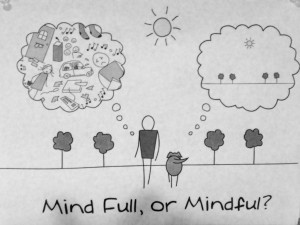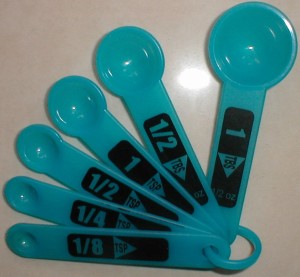
So many of us get caught in whirlwind diet cycling that leaves us constantly falling off the diet bandwagon. Getting caught up in the dieting “do’s and don’ts”. One week we’re the perfect role models of healthful eating and exercise and the next we are victim to the unexpected events that cause us to eat in ways that would put the local buffet out of business. That vicious cycle starts when we try and fit eating into a perfect theoretical box. There are no foods that you can’t or shouldn’t eat and eliminating the negative connotations associated with “junk” food may actually help you from falling into the trap of over-eating and throwing your mostly healthy diet out the window!
- Eat mindfully.
Paying attention to what you’re eating and avoiding distractions can help you recognize when your body is full and keep you from over eating. Actually tasting every bite will keep you from reaching for more in the  black out moments of extreme hunger and binge eating. Avoid the urge to eat while watching your favorite program or scrolling your favorite social media site to catch up on the latest in Sally Jo’s love life. Setting aside actual meal time will cut down on the amount you consume and help you develop a healthier relationship with food.
black out moments of extreme hunger and binge eating. Avoid the urge to eat while watching your favorite program or scrolling your favorite social media site to catch up on the latest in Sally Jo’s love life. Setting aside actual meal time will cut down on the amount you consume and help you develop a healthier relationship with food.
- Allow yourself leeway.
Restricting yourself from a certain food craving may just intensify the urge to binge on less desired substitutions. Having that one mini cupcake may be a better alternative than the 10 giant marshmallows, one cup of sugared almonds, and the two packs of your kids fruit snacks that might be eaten in the frenzy of trying to find a lower fat or less “evil” substitution. There are no foods that need to be restricted in order to lead a healthy life. Just make sure you are actually craving a little treat, rather than thirsty or bored. If it truly is a craving, feed it. There are no magic foods.
- Portions are the name of the game.
In today’s times, portions have lost their true definition. They’ve been redefined by the restaurants we patron or the amount we eat in a setting. Portions have a quantitative measurement and are listed on every food package or defined for foods such as meats and produce. Educating yourself on correct portion sizes or following the portions set on packages will reduce the amount of calories and fat you are consuming on a daily basis, as well as keep you from over eating. I am frequently asked, as a dietetic student, how to lose weight. I absolutely believe it begins with correct portion sizes. You can eat the most nutritious foods known to man and still put on weight if your portions are super-sized. It can be a frustrating feeling if you’re not seeing the scale move in the direction you want it to, but feel you are eating an extremely healthy diet.
daily basis, as well as keep you from over eating. I am frequently asked, as a dietetic student, how to lose weight. I absolutely believe it begins with correct portion sizes. You can eat the most nutritious foods known to man and still put on weight if your portions are super-sized. It can be a frustrating feeling if you’re not seeing the scale move in the direction you want it to, but feel you are eating an extremely healthy diet.
Healthy eating begins with mindful eating. Developing a healthy relationship with food will help take the mythology out of “evil” foods and give them less power when it comes to helping you stay on track. If a cupcake is just a cupcake, then you don’t have to worry about one indulgence derailing your otherwise healthy diet. Developing mindful habits will put you in tune with your body’s natural cues and help keep over eating at bay.
“If you try to lose weight by shaming, depriving, and fearing yourself, you will end up shamed, deprived, and afraid.” ~Geneen Roth
Featured Photo Illustration by Sarah Rogers/The Daily Beast










